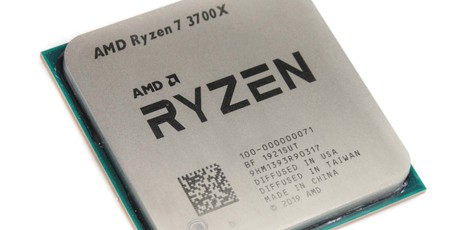
Overclocking
Once again we were faced with a 4.3GHz wall, the same as we saw with the Ryzen 9 3900X. Even after tweaking memory voltage, loadline calibration, and vcore, we weren't able to get the likes of Cinebench stable for a whole benchmark run. This was the limit at our usual 1.425V, but even pumping 1.44V through the CPU didn't help, so 4.3GHz is what we settled for.
We did manage to squeeze some PBO testing in, though, which increased the all-core boost from 4GHz out of the box to 4.125GHz using PBO and 4.15GHz by dialling a 200MHz uplift to the Automatic Overclocking feature - still lower than our manual overclock of 4.3GHz, but all while keeping the slightly higher maximum boost frequency. We didn't really see any activity beyond the latter (4.4GHz), though admittedly we didn't tweak any power limits, so gamers would likely want to stick to stock speed or make use of PBO and Automatic Overclocking, while content creators should consider dialling in a manual overclock.
Performance Analysis
In a similar fashion to the Ryzen 9 3900X, the Ryzen 7 3700X offered far better bang for your buck in content creation than the Core i7-9700K, in fact even more so here since the latter costs around £60 more. Only when massively overclocked did the Core i7-9700K offer better performance than the stock AMD CPU, but the latter was quicker again once we'd overclocked it in Premiere Pro. Without Hyper-Threading the Intel CPU stood no chance in HandBrake, where the AMD CPU was 16 percent quicker, and even the overclocked Core i7 couldn't get close, while the Ryzen 7 3700X even managed to match the Core i9-9900K in Premiere Pro once overclocked and drew with it in HandBrake.
The Ryzen 7 3700X lacked the single-threaded grunt of the 12-core, resulting in a single-threaded test result of 511 in Cinebench, although this was still quicker than the Core i7-9700K and only six points behind the Core i9-9900K. Amazingly, it was practically a dead heat between the Core i9 and Ryzen 7 in the multi-threaded test, where the AMD CPU edged out a huge lead over the Core i7-9700K and added a massive 18 percent to the score of the Ryzen 7 2700X.
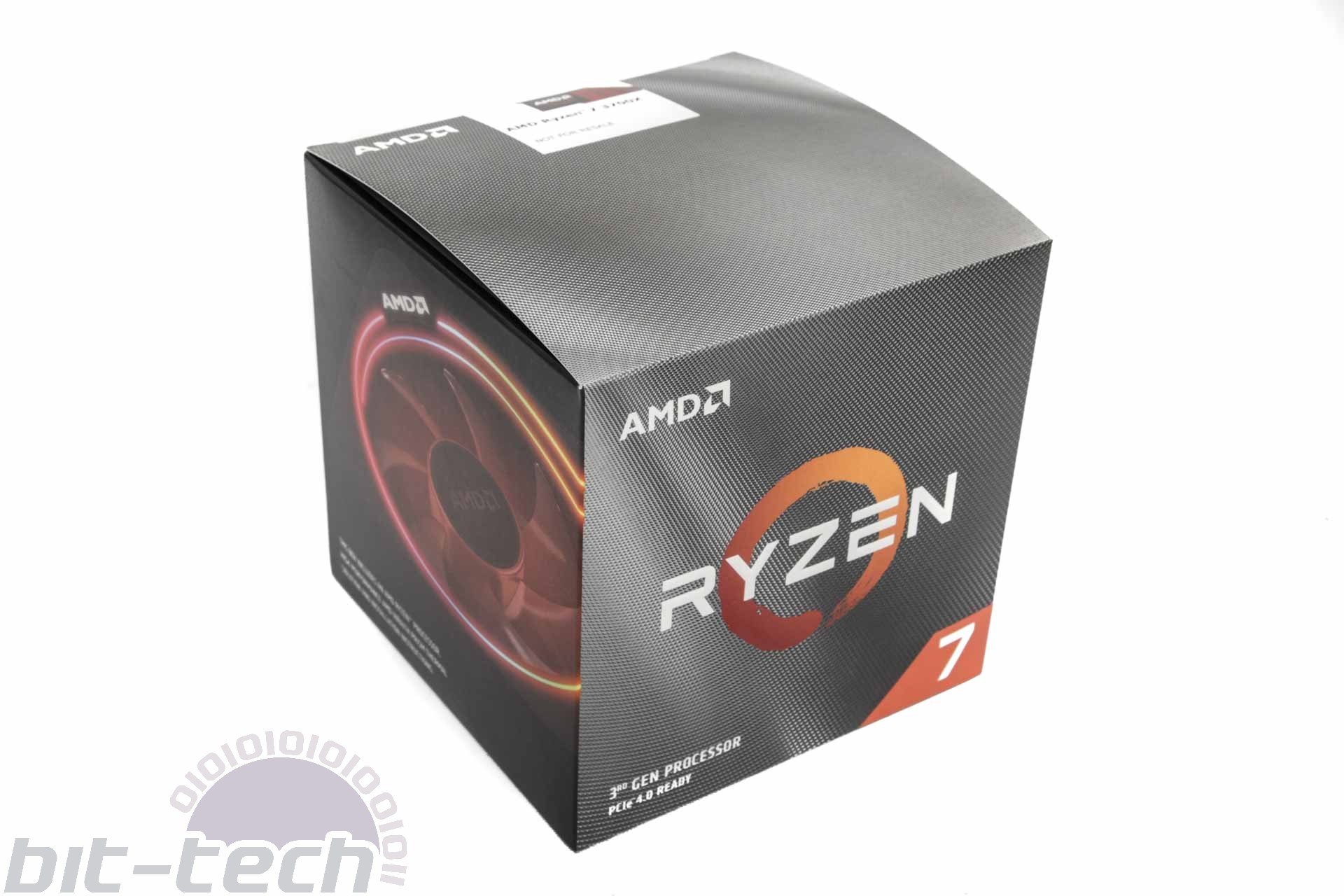
In games, Dota 2 generally seemed to like IPC and higher frequencies, and at 1080p there was only a 5fps difference on the 99th percentile between Ryzen 7 3700X (100fps) and Ryzen 9 3900X (105fps), with the Core i7-9700K managing 112fps in this metric. The average was a similar percentage lower at 196fps for the Intel CPU, 193fps for the Ryzen 9 3900X, and 174fps for the Ryzen 7 3700X, but if you think Intel is simply faster across the board here, it's worth looking at the result of the Core i7-8700K, which was roughly in line with the AMD CPU under review here - naturally, though, AMD slaughtered Intel in content creation when comparing these two. Also, just look at the gains AMD has made over Zen+: The Ryzen 7 2700X drops 15fps on the 99th percentile and 25fps on the average frame rate, and that's using the exact same hardware - that difference is pure Zen 2 horsepower.
Far Cry 5 was a very different story with AMD faring much better. The Ryzen 7 3700X had a higher 99th percentile than the Core i9-9900K but a lower average frame rate. The all-core overclock we applied boosted the 99th percentile, but the average frame rate remained unchanged, which similar to what we saw with the Core i9-9900K, which still didn't overtake the AMD CPU when we overclocked it. Interestingly, the Core i7-9700K was way out in front, and as we mentioned in our Ryzen 9 3900X review, we can only assume this is down to it being the only CPU here that lacks Hyper-Threading and Far Cry 5 preferring a one core-one thread approach. Yet again, we saw some tidy increases over the Ryzen 7 2700X, with 10fps being added to the 99th percentile or 12 percent on average.
The 65W TDP was clearly evident, as the Ryzen 7 3700X drew just 185W under load from the wall compared to 253W for the Ryzen 7 2700X in the same system and around 210W each for the two Intel eight-core CPUs - a clear benefit of the 7nm manufacturing process. Even when overclocked, that rose to just 225W.
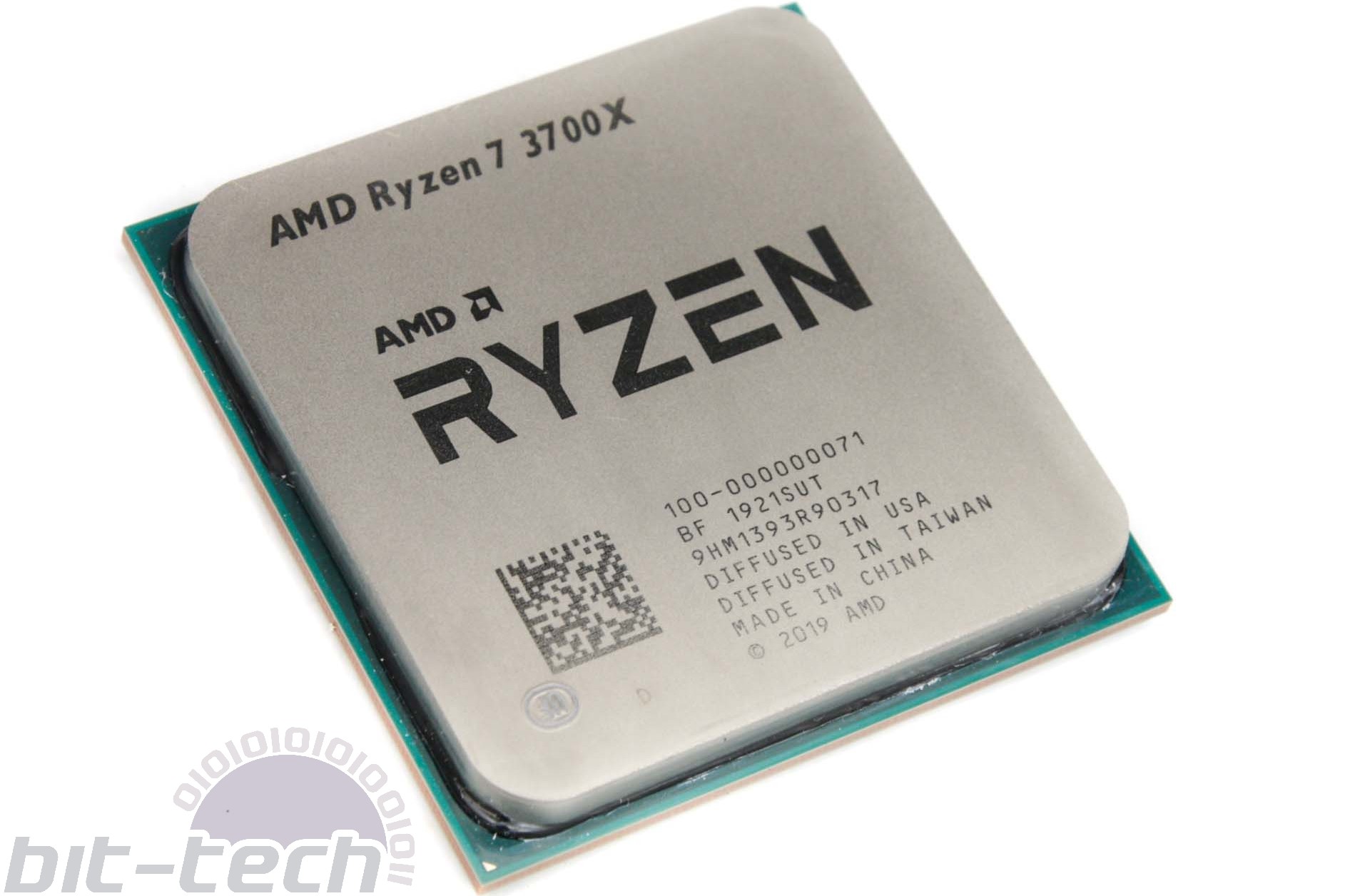
Conclusion
If you're toting a powerful GPU and are aiming for super-high frame rates to drive your high refresh rate monitor, then there are still some instances were Intel is a tad better. Dota 2 saw marginal gains over AMD, and as we suspected, the higher frequency of the Ryzen 9 3900X also helped, which may well persuade some to opt for the Ryzen 7 3800X instead of the lesser-clocked, more power-frugal Ryzen 7-3700X. Far Cry 5, though, shows that there's far less of a difference compared to the Zen+ era, where Intel had hefty leads. We see double-digit percentage gains over the Ryzen 7 2700X, leaving the Ryzen 7 3700X trading blows with the Intel eight-core CPUs. It's by no means a knockout blow, at least in the titles we tested, but it's mostly an on-par or insignificant difference to most of us.
In content creation, things are absolutely clear cut - it's AMD all the way, with this CPU matching or bettering the Core i9-9900K and generally leaving the more expensive Core i7-9700K with a bloody nose too.
It remains to be seen if the Ryzen 7 3800X is worth the extra cash, and we suspect that the all-core boost may well prove to be noticeably higher given the 105W versus 65W TDP and only another 100MHz on the maximum boost to show for it. That is unless AMD is having to shove through a fair amount of power more to reach those maximum boost frequencies. Overall, though, the Ryzen 7 3700X is an impressive CPU for the cash, is a far better choice than the Core i7-9700K if you're a casual gamer and not looking to squeeze every last frame out of your 1080p 200fps titles, and it blows the Intel CPU out of the water when it comes to content creation. It's a shame overclocking headroom is limited, but depending on your system, you may find extra benefits from spending some time tweaking Precision Boost Overdrive and Automatic Overclocking.


MSI MPG Velox 100R Chassis Review
October 14 2021 | 15:04

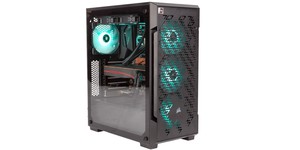
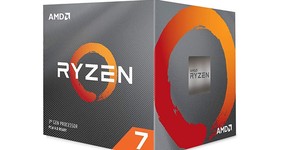
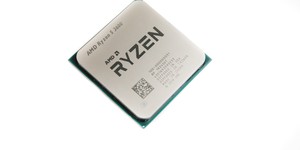




Want to comment? Please log in.